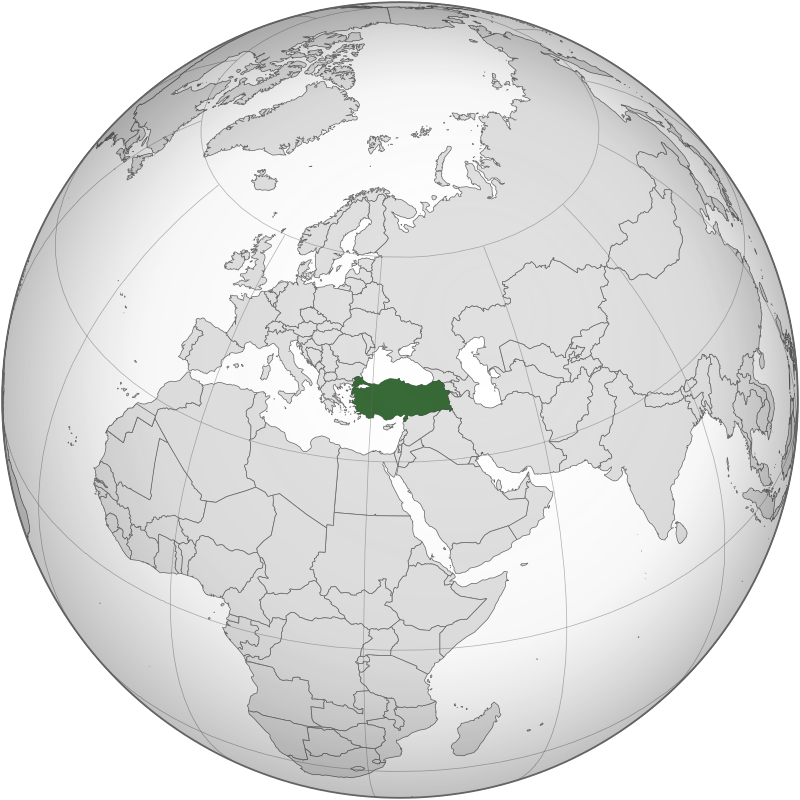Turkey_(orthographic_projection).svg_.png

Part 3 of 3 Parts (Please read Part 1 and Part 2 first)
In spite of the claim by Turkey that the Akkuyu nuclear plant will only be used to diversify energy resources, some analysts have suggested that Turkey may be planning on enriching uranium at the plant. Turkey and Pakistan have had a long history of cooperative miliatry agreements. This cooperation has recently inscrease substantially. In view of the fact that Pakistan has nuclear weapons, there has been speculation that Pakistan is covertly helping Turkey develop a nuclear weapons program.
When ask about the possibility that Turkey is engaged in cooperative agreeements with Pakistan to develop nuclear weapons, a senior Turkish energy official said that during meetings between the two countries in Vienna, there had been discussions about possible cooperation on the peaceful use of nuclear science, especially involving radiation technologies and cancer treatment. He said that any such agreements would be under the control of the International Atomic Energy Agency.
Turkey is a signatory to all international nonproliferation agreements and export control regimes. These include the Treaty on Non-Proliferation of Nuclear Weapons, Comprehensive Test Ban Treaty (CTBT), Chemical Weapons Convention (CWC), and Biological Weapons Convention (BWC). Turky is also among the signatories of the binding International Code of Conduct against the proliferation of ballistic missiles as well as other international anti-weapon agreemetns.
Skeptics point out that Pakistan has a long history of covertly supplying nuclear technologies to other countries in contravention of international treaties on nonproliferation. A.Q. Khan is a famous Pakistani nuclear physicist who was one of the founders of the Pakistani nuclear weapons program. Following the Indian detonation of it’s first atomic bomb in 1974, he started the Khan Research Laboratory in 1976 to help his country secretly develop nuclear weapons to counter the nuclear weapons program of India, Pakistan’s enemy.
During the 1980s, Khan was under international suspicion for supplying uranium enrichment centrifuge technology to North Korea in exchange for rocket engines. He was also accused of supplying centrifuge technologies to Iran and Libya.
In 2004, Khan was interrogated by the Pakistani government with respect to his nuclear weapons proliferation eactivities which had been brought to light by the Bush administration in the U.S. and presented to the Pakistani government. He admitted to his role in running the proliferation network. He was put under house arrest which seemed to be a mild punishment for what he was accused of. In 2009, a Pakistani court reversed his conviction on a technicality and he was released. The Obama adminstration complained about his release and said that he was still a serious proliferation risk. There is great international fear that Iran is actively pursuing nuclear weapons and may be using technology supplied by Khan.
Considering the close relationship regarding military assistance between Turkey and Pakistan as well as the expressed desire of Turkey to have nuclear weapons, it is difficult to believe that Turkey and Pakistan have not at least discussed nuclear weapons collaboration. Given the history of Pakistan with respect to covert nuclear weapons proliferation, it is easy to believe that they may be actively engaged in just such activity with Turkey today.